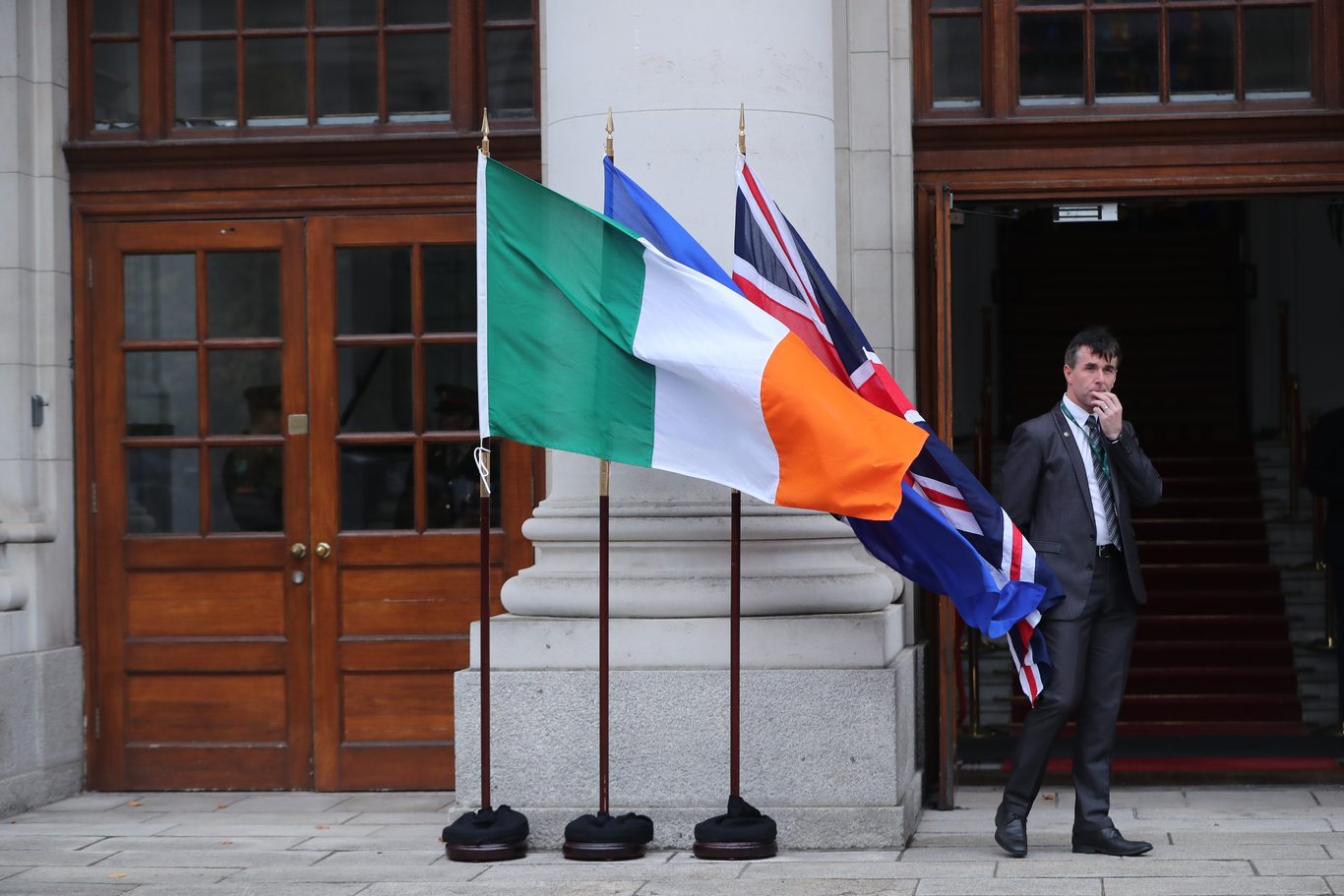The 'forgotten child of Brexit': Managing the risks to Ireland and Britain's €46bn services trade
As trade negotiations get underway, there are worries that the services sector is being overlooked.
THE SERVICES SECTOR is the “forgotten child of Brexit” when it comes to drawing up a comprehensive trade deal, according to John McGrane, the director general of the British-Irish Chamber of Commerce.
The body yesterday launched its Signposts for Services proposal, a framework to protect the trade in services between the two countries after the UK leaves the European Union.
“Nothing that we touch physically, that has arrived onto our desks, into our business or our homes is without a service attached,” McGrane said.
The document sets out five main proposals to avoid any new regulatory barriers – including the storage and transfer of data, recognition of qualifications and the delivery of cross-border financial services.
Among its key recommendations are that negotiations use a “negative listing” approach as, given the tight timescale, it believes it would make more sense to look at what is already traded and carve out what might not work.
It also calls for a “comprehensive mutual recognition of qualifications framework” to enable professionals trained in either country to keep operating both, as well as “generous provisions” for people travelling temporarily on services-based business.
The paper also recommends close alignment between regulatory systems here and in the UK to allow cross-border financial services to continue.
A free trade agreement covering services this comprehensively has never been done before anywhere else and the process is, unsurprisingly, complex. As such, the deadline isn’t clear to draw one up – it could take up to five years, according to McGrane.
The current deadline to agree a trade deal with the EU, after a few extensions, is December of this year.
About 18 months ago, the chamber launched its paper on the Big Principles for Brexit, which was focused on the trade of goods between Europe and the UK. But “the elephant in the room was how do we deal with services”, Peter O’Shea, president of the chamber, said.
What’s at stake
“The value of services trade between Ireland and the UK is about €10 billion more than the trade in goods,” Katy Daughen, head of Brexit policy at the chamber – and lead author of the report – said yesterday.
In 2018, Ireland exported €28.3 billion in services to the UK and imported €17.8 billion – so that’s a total trade of €46 billion with a surplus of €10.5 billion.
That year, we also exported €16.1 billion in goods to the UK and imported €20 billion, so a total trade of €36 billion, with a deficit of nearly €4 billion.
The main services we export to the UK are computer services, financial services and other business services, while the main services we buy in from the UK are other business services, financial services and insurance.
Data is a big part of this, which is why the chamber is proposing an “adequacy declaration” from the UK. Under GDPR, an adequacy declaration allows cross-border data transfer outside of the EU.
‘False relaxation’
As in the trade of goods, there are varying levels of preparation and awareness of the potential impact of Brexit on services in Ireland.
Pharmaceuticals and finance are more prepared because they’re heavily regulated, while smaller companies don’t know what they need to prepare for.
“In the Ireland and UK context, the common travel area delivers a very much appreciated set of protocols around the movement of British citizens in Ireland the movement of Irish citizens in the UK. But that shouldn’t be confused with presuming that that allows every Irish firm to have all of its employees, many of whom may not be Irish citizens, to simply travel and do all sorts of work in Britain or vice versa,” McGrane said.
“We guard against the presumption or any sort of false relaxation that says, ‘there’s nothing to worry about here because we’d be able to just hop on a plane’. That’s far from assured.”
Many of our services are tech-based and Brexit could mean that “the delivery of data across boundaries is far from assured… in the simplest layperson’s terms, the data may not be allowed to be stored in a non-EU state,” he added.
Many companies in Ireland store data in the UK and vice versa.
“We’re not just sort of converged, we’re bound up in each other. The conduct of daily life across most of our sectors is bound up in the fact that we have, effectively the free movement of services across borders today. That’s what we’re trying to protect,” he said.
Get our Daily Briefing with the morning’s most important headlines for innovative Irish businesses.






